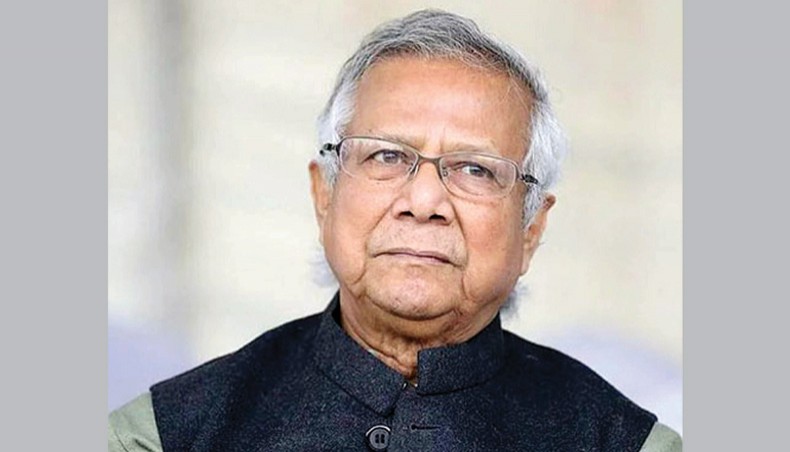
Professor Mohammad Yunus.
The High Court said on Monday that diplomats should remain more cautious while making remarks on the internal affairs of Bangladesh.
The bench of Justice Md Nazrul Islam Talukder and Justice Kazi Ebadat Hossain came up with the remarks as lawyer Khurshid Alam Khan sought an order for the foreign ministry to take action against US ambassador to Bangladesh, Peter Haas.
The bench later, in a verdict, cancelled a Labour Appellate Tribunal order that on January 28 stayed the execution of the conviction and six-month jail term handed down to Nobel laureate Professor Mohammad Yunus by the Dhaka Third Labour Court in a labour law violation case.
The labour court’s verdict that convicted Yunus finding him guilty of a labour law violation, would remain operational, as the bench observed in its verdict.
The HC pronounced the verdict after hearing a petition filed by the Department of Inspections for Factories and Establishments challenging the Labour Appellate Tribunal’s order staying the labour court’s verdict against Yunus.
The factories’ lawyer, Khurshid Alam Khan, told reporters that Yunus would now be treated as a convicted person in all the documents as the High Court cancelled the Appellate Tribunal’s order staying his conviction.
The High Court in the verdict observed that there was no provision for suspending the order of conviction as the Labour Appellate Tribunal, after hearing Yunus’ appeal, would decide if the conviction would be sustained or not.
The High Court further observed that there was no need to stay the execution of Yunus’ jail term as his jail term would remain suspended automatically after he was granted bail pending disposal of his appeal against the labour court verdict.
The High Court in the verdict said that the Labour Court directive on Yunus to regularise Grameen Telecom workers with payment of arrears would be stayed until his appeal was disposed of.
The High Court also asked the chairman of the Labour Appellate Tribunal to dispose of Yunus’ appeal as early as possible.
Yunus’ lawyer, Abdullah Al Mamun, contended that such a High Court verdict would shackle the lower court from exercising its jurisdiction.
Yunus, a micro-credit pioneer, is facing over 100 cases relating to alleged violations of the rights of the workers of his entity, Grameen Telecom, and the suppression of income taxes by his Grameen Kalyan.
Yunus and his Grameen Telecom colleagues Md Ashraful Hassan, M Shahjahan, and Nurjahan Begum were jailed for six months with a fine of Tk 5,000 on January 1 on charges of labour law violation.
They were later granted immediate bail on the condition that they would appeal against the verdict within a month.
On September 9, 2021, the Department of Inspection for Factories and Establishments filed the case.
According to case files, the department noticed several labour law violations during an inspection at Grameen Telecom.
The violations include failure to make the jobs of 101 workers and employees permanent, not forming a workers’ participation fund and welfare fund, and failure to provide 5 per cent of the company’s dividend to workers.
Khurshid, submitting a dateless online report to the High Court, said on Monday that Peter Haas, during a recent dinner party with Professor Yunus and Grameen Telecom director Nurjahan Begum, alleged that the Yunus case was an example of abusing the provisions of Bangladesh labour law.
Asked to comment if the court can take action against any diplomat for remarks on the pending proceedings of the courts, Khurshid and Yunus lawyer Abdullah Al Mamun informed the court that the diplomats enjoyed impunity in their statements.
Khurshid argued that Peter Haas breached the Vienna Convention by making remarks on the internal affairs of Bangladesh.
Mamun argued that only the foreign ministry, not the court, is empowered to look into the matter of any violation of the Vienna Convention.
Mamun said that the High Court should also remain more careful so that any law officer of the government could obtain an order misleading the court to tarnish the image of Bangladesh.
The High Court refrained from entertaining the request of lawyer Khurshid, stating that the issue was too complicated.
The court verbally observed that foreign delegates should remain more cautious while making comments on the internal affairs of the host country.
New Age









